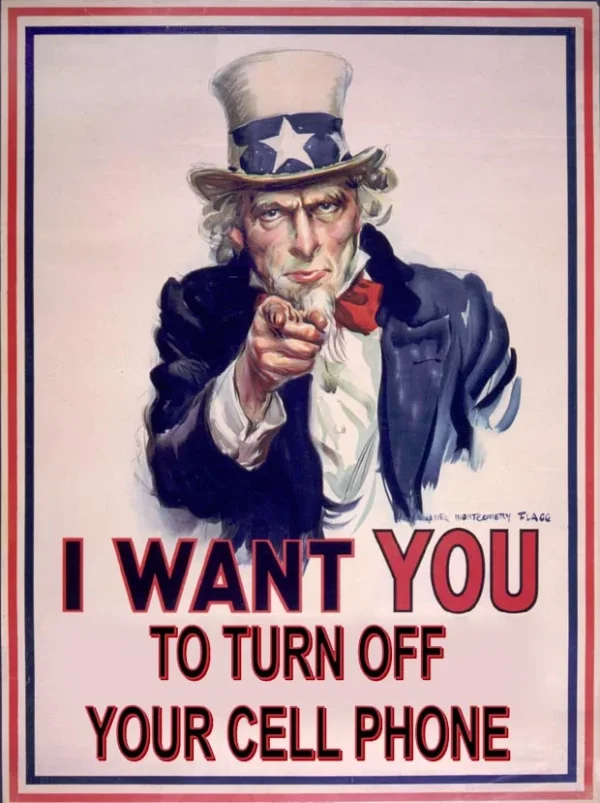V
V.Balasubramani
Guest
I would like to share this news item with the members. Recording advice of Doctors discreetly is ethical?
CHENNAI: Most patients waiting outside doctors' cabins use their phones to text, surf the internet, and post messages. Now, some of them have started using their phones to record conversations with doctors to be doubly sure of the advice, but the practice, often done without the doctor's consent, has ruffled physicians.
Doctors said an increasing number of patients are discreetly recording conversations on diagnosis, consent, medication, treatment and follow-ups. Last week, a pediatrician in Chennai saw the mother of a six-year-old child reach out for a mobile and discreetly hit the record button.
"She never asked me if she could do that. Even if she did, I would have refused, because I am uncomfortable. When I am being recorded, I measure my words. It doesn't work," said the pediatrician. The doctor asked the woman and the child to leave his clinic.
The doctor said the option of recording could be tempting for patients who don't understand medical terms. The woman was stressed over her child's health for nearly a week, and she was scared that she may not be attentive to what the doctor said. She thought the recording would be useful for her husband, who could not make it to the clinic that day. But the pediatrician felt it put his practice at risk, as something inadvertently said could be used against him.
"Recording such a conversation is a breach of confidentiality and infringement on privacy of doctors," said Tamil Nadu State Medical Council president Dr K Prakasam.
Dr J Mohanasundaram, former dean Madras Medical College, said it is illegal to discreetly record any conversation. "It gets worse when it is a doctor-patient conversation. The basic trust is lost. Instead of making clarification with the doctor, patients may take a second opinion," he said.
The state medical council, along with the state wing of the Indian Medical Association, is planning to write to the state health department in this regard. They want the health department to make amendments to the Tamil Nadu Medicare Service Persons and Medicare Service Institutions (Prevention of Violence and Damage to Property) Act, 2008 to make discreet recording of such conversations an offence. Doctors associations are planning to prepare posters to create awareness. They have also asked doctors to post signs in their clinics banning the practice.
However, some doctors do record their conversations with their paients, with their consent. Gastric surgeon Dr S M Chandramohan sees benefits in recording conversations when they are done with the consent of the patient.
"I have been doing this for 10 years now. It empowers my patients. I email the recordings to them. Many are happy to listen to it at leisure," said Dr Chandramohan. His patients are free to play the tape to other doctors for a second opinion. "It has helped his patients make crucial decisions," he said.
Courtesy: The Times of India Oct 25, 2013,
CHENNAI: Most patients waiting outside doctors' cabins use their phones to text, surf the internet, and post messages. Now, some of them have started using their phones to record conversations with doctors to be doubly sure of the advice, but the practice, often done without the doctor's consent, has ruffled physicians.
Doctors said an increasing number of patients are discreetly recording conversations on diagnosis, consent, medication, treatment and follow-ups. Last week, a pediatrician in Chennai saw the mother of a six-year-old child reach out for a mobile and discreetly hit the record button.
"She never asked me if she could do that. Even if she did, I would have refused, because I am uncomfortable. When I am being recorded, I measure my words. It doesn't work," said the pediatrician. The doctor asked the woman and the child to leave his clinic.
The doctor said the option of recording could be tempting for patients who don't understand medical terms. The woman was stressed over her child's health for nearly a week, and she was scared that she may not be attentive to what the doctor said. She thought the recording would be useful for her husband, who could not make it to the clinic that day. But the pediatrician felt it put his practice at risk, as something inadvertently said could be used against him.
"Recording such a conversation is a breach of confidentiality and infringement on privacy of doctors," said Tamil Nadu State Medical Council president Dr K Prakasam.
Dr J Mohanasundaram, former dean Madras Medical College, said it is illegal to discreetly record any conversation. "It gets worse when it is a doctor-patient conversation. The basic trust is lost. Instead of making clarification with the doctor, patients may take a second opinion," he said.
The state medical council, along with the state wing of the Indian Medical Association, is planning to write to the state health department in this regard. They want the health department to make amendments to the Tamil Nadu Medicare Service Persons and Medicare Service Institutions (Prevention of Violence and Damage to Property) Act, 2008 to make discreet recording of such conversations an offence. Doctors associations are planning to prepare posters to create awareness. They have also asked doctors to post signs in their clinics banning the practice.
However, some doctors do record their conversations with their paients, with their consent. Gastric surgeon Dr S M Chandramohan sees benefits in recording conversations when they are done with the consent of the patient.
"I have been doing this for 10 years now. It empowers my patients. I email the recordings to them. Many are happy to listen to it at leisure," said Dr Chandramohan. His patients are free to play the tape to other doctors for a second opinion. "It has helped his patients make crucial decisions," he said.
Courtesy: The Times of India Oct 25, 2013,

